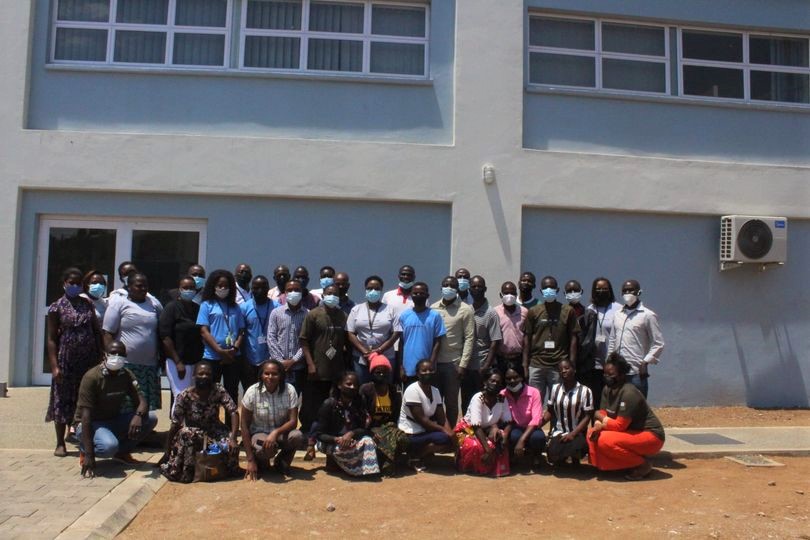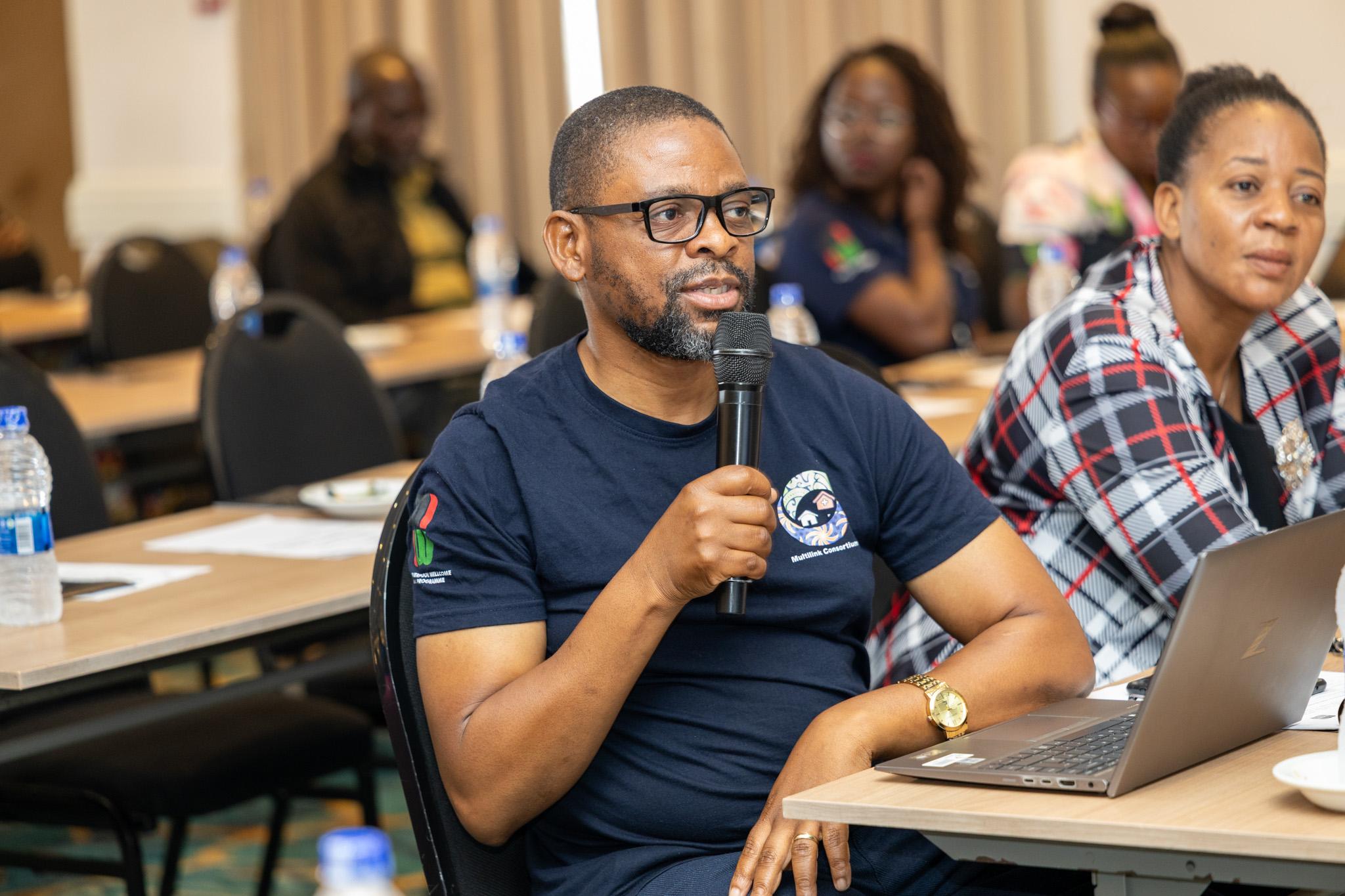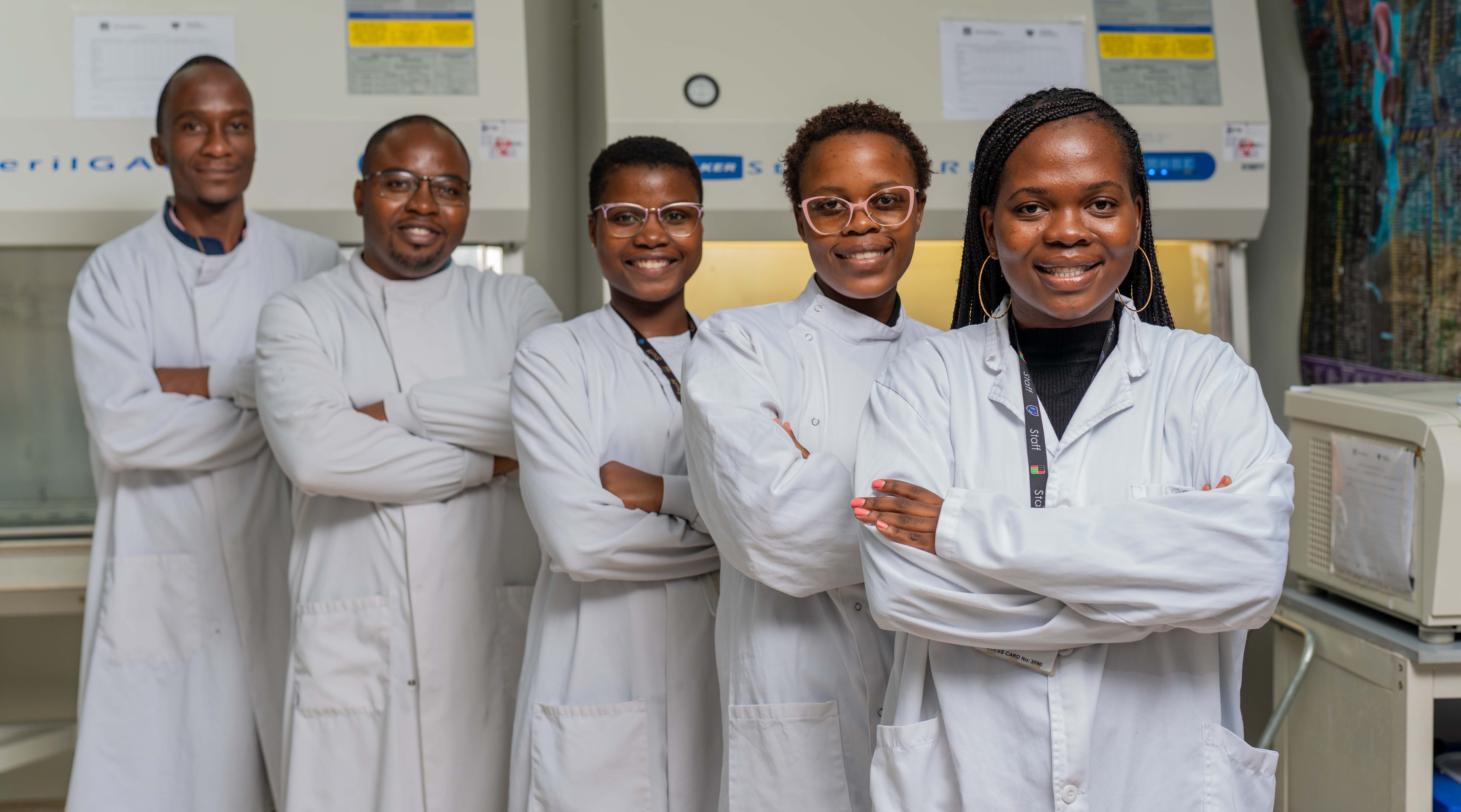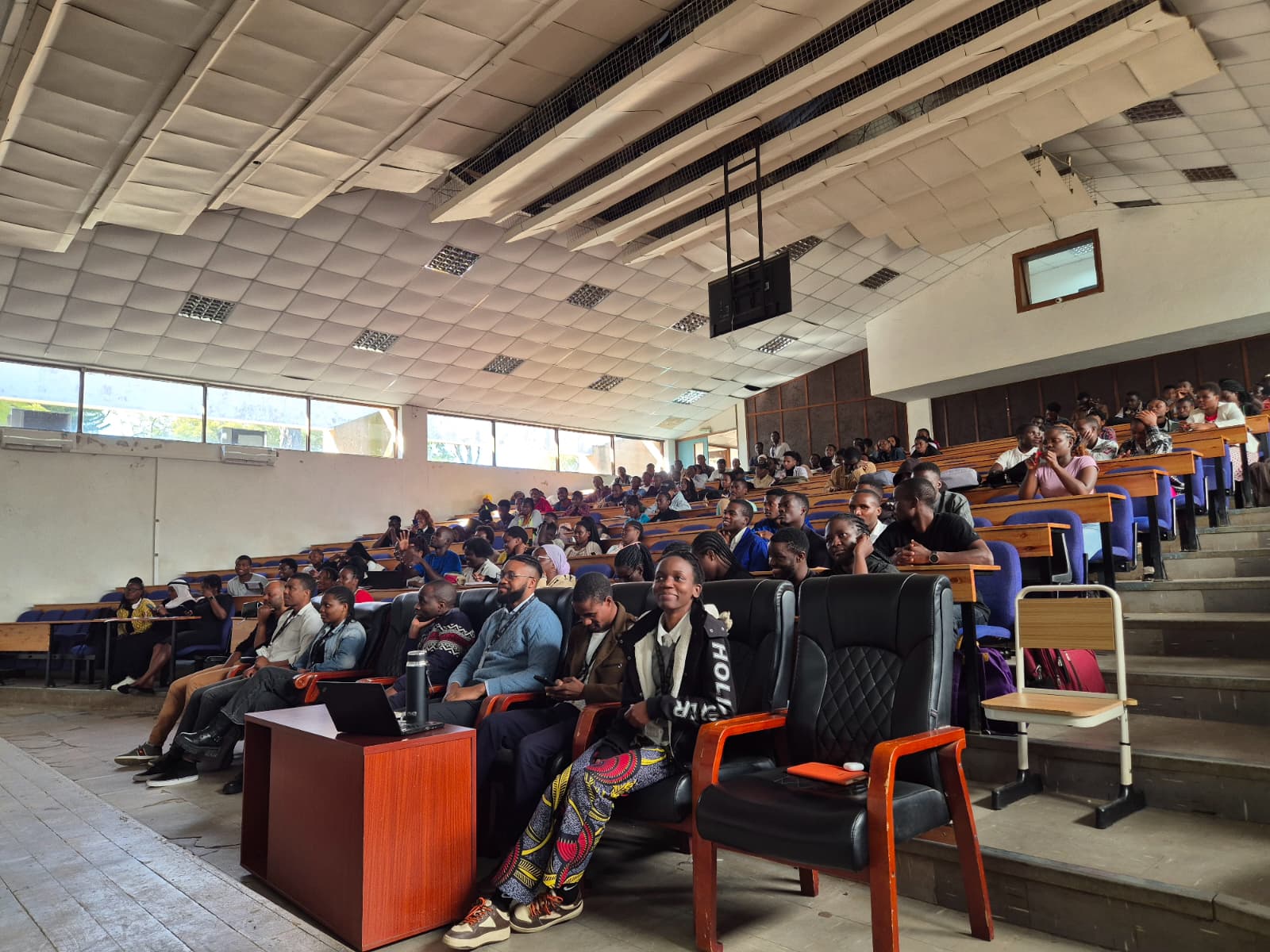On 23 October 2021, MLW presented the results of the AMBIsome Therapy Induction OptimisatioN (AMBITION-cm) study to participants. The study was conducted at the Queen Elizabeth Central Hospital and the Kamuzu Central Hospital from 2018.
Speaking at the dissemination meeting, study lead Professor Henry Mwandumba emphasised the importance of disseminating research findings to participants.
“Public engagement is very important throughout the process of any research. As stakeholders of research, participants have the right to know the outcomes of research,” he said.
Professor Henry Mwandumba expressed satisfaction with the trial results because they are expected to bring policy change in the way cryptococcal meningitis will be treated in Malawi.
Speaking on behalf of other study participants at the dissemination event, Dan Sangwa commended MLW for involving the participants during the results dissemination process. Participants, according to Ngwira, become direct witnesses of a study and can become better advocates of research findings in their various communities. Sangwa said researchers should therefore make sure they explain their study outcomes to study participants.
“By involving us in the dissemination process, we have been empowered. MLW has also proven to us that we are equally important now as we were during the data collection phase of the study,” he said.
The lead study physician Dr. Melanie Moyo described the participants’ trial results dissemination event as an ethical part of the study.
“Sharing research findings with participants is one of the ethical requirements for clinical research. Not only does it provide a channel for dispelling myths of clinical research in their communities, but it also makes participants feel valuable,” said Moyo.
On the trial results, Dr. Moyo shared that the trial has shown that a single, high dose of Liposomal amphotericin B (AmBisome) at 10mg/kg was as good as (non-inferior) to 7 daily doses of 1mg/kg of amphotericin B deoxycholate at clearing cryptococcus neoformans from the cerebrospinal fluid. Both drugs were given in combination with flucytosine and fluconazole. In addition, AmBisome caused fewer side effects such as anaemia and low potassium and intravenous line infections, making it safer to administer in comparison to amphotericin B deoxycholate.
It is, therefore, evident from the findings of the study that one dose of AmBisome is effective and much easier to give in treating cryptococcal meningitis. This regimen is practical, easier to administer, and safer so that access to this treatment can be expanded to district and community hospitals.



